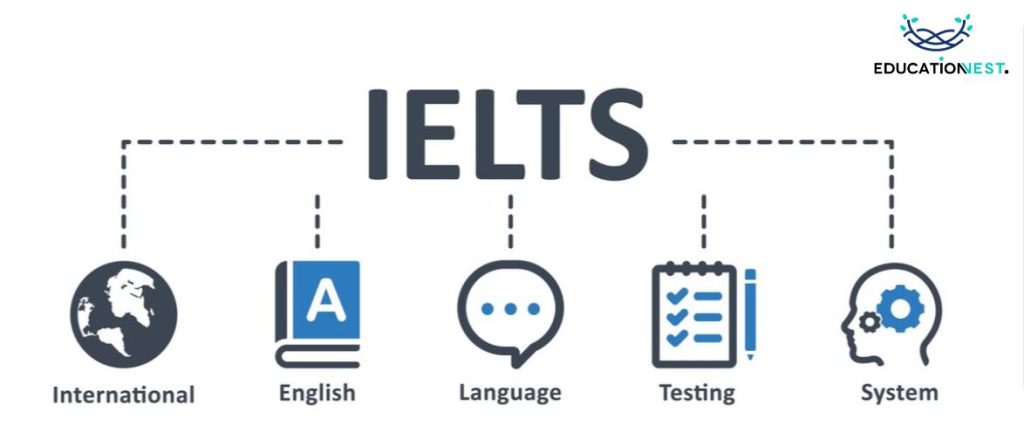The IELTS reading section measures your ability to understand academic English across different topics. Mastering this section requires significant practice to familiarize yourself with the format, question types, and develop strategies. Reviewing sample IELTS questions helps you gain experience analyzing passages and answering questions efficiently.
In this blog, we provide 50 high-quality IELTS reading practice test questions to help you prepare for exam day. Let’s get started!
IELTS Reading Passage Type Questions

There are 3 common passage types on the IELTS reading test:
Factual Passages:
Provide factual information on a topic, such as a historical event or scientific process.
Descriptive Passages:
Describe a certain concept, place or idea in detail to give the reader background knowledge.
Argumentative/Discursive Passages:
Present an opinion, argument or point of view about a topic that the author supports with evidence.
Practice reading passages on diverse topics so you are comfortable comprehending all three types.
IELTS Question Formats
These are the main question types seen in the IELTS reading section:
Multiple Choice
Pick one correct option out of four choices.
Short Answer
Write a word, phrase or number that answers the question.
Sentence Completion
Fill in the missing word or words to complete a sentence.
Table/Flow Chart Completion
Complete a table or flow chart with words, phrases or numbers based on the passage.
Summary/Note Completion
Complete notes or a summary with information from the reading.
Classification
Categorize list items according to passage information.
Matching Information
Match pieces of information from a passage to provided options.
Selecting Factors
Choose statements that relate to or describe a factor presented in the reading.
Let’s now look at 50 practice questions covering each of the formats above to aid your IELTS preparation.
Practice IELTS Reading Test Questions
Reading Passage 1
1. The ethical theory Aristotle supported was:
A. Utilitarianism
B. Nicomachean ethics
C. Stoicism
D. Hedonism
2. Aristotle believed happiness was the ultimate goal because:
– It underlies every human choice and action
– It is desired entirely for its own sake
– It is self-sufficient and complete in itself
3. In Aristotle’s view, happiness depends on:
A. Chance or luck
B. Living virtuously
C. Achieving honor
D. Experiencing pleasure
4. Which of the following does Aristotle argue leads to the greatest happiness?
5. Complete the sentence: Aristotle sees the political community as important for human well-being because __________.
6. Classify the following as aspects of Intellectual Virtue or Moral Virtue according to Aristotle:
i) courage
ii) wisdom
iii) justice
iv) temperance
7. Choose TWO factors Aristotle mentions that can affect an individual’s ability to be virtuous:
A. Wealth
B. Upbringing
C. Opportunity
D. Effort
E. Society
Reading Passage 2
Table Completion
Cause of Tidal Movement | Description
Gravitational Force | …..
…. | Tidal bulges occur on opposite sides of the Earth.
… | The Sun’s gravitational pull creates tides.
Centrifugal Force | …….
8. The rock formations and fossils found in Glacier Bay indicate__________.
A. It was formed by a receding glacier
B. It was formed by heating and cooling of the Earth
C. It was formed by volcanic activity
D. It was formed by an ancient meteor impact
9. Glaciers create U-shaped valleys through:
10. Based on the passage, select TWO consequences of glacial advance and retreat:
A. Erosion of rock basins
B. Deposition of gravel and sediments
C. carved U-shaped valleys
D. Cooling of regional temperatures
E. Rising sea levels
Also Read:
CCC Online Test: 50 Questions with Answers
Reading Passage 3
11. Which previous researcher is drawn upon in disagreeing with Wood’s analysis?
12. In paragraph 2, the author argues Warren’s work was significant because:
13. The author refers to the “political uselessness of this excess demanded by consumer culture” (lines 37-39) in order to:
A. introduce an opposing view and counterargument
B. provide background context about the topic’s history
C. acknowledge a limiting condition related to the topic
D. describe ongoing challenges that remain to be addressed
14. The word ameliorated in “ameliorated working conditions” (line 26) most closely means:
A. changed gradually
B. made more severe
C. made more comfortable
D. understood clearly
15. Complete the summary:
The author argues Warren’s work was groundbreaking in that it __________.
Review and Reflect
Review these reading practice questions to gain familiarity with the types of questions, formats and analytical skills needed for the IELTS exam.
Some Key Points to Remember
- – Carefully read the introduction and text before looking at questions
- – Identify key details, opinions and rhetorical devices in passages
- – Eliminate incorrect options for multiple choice questions
- – Answer short answer and sentence completion questions concisely
- – Double check responses against the passage when uncertain
Continue to take timed, full-length IELTS reading practice tests to work on test-taking pacing and strategies. Read extensively on academic topics to build your vocabulary, speed, and comprehension. With comprehensive preparation, you can achieve your target IELTS reading score.
